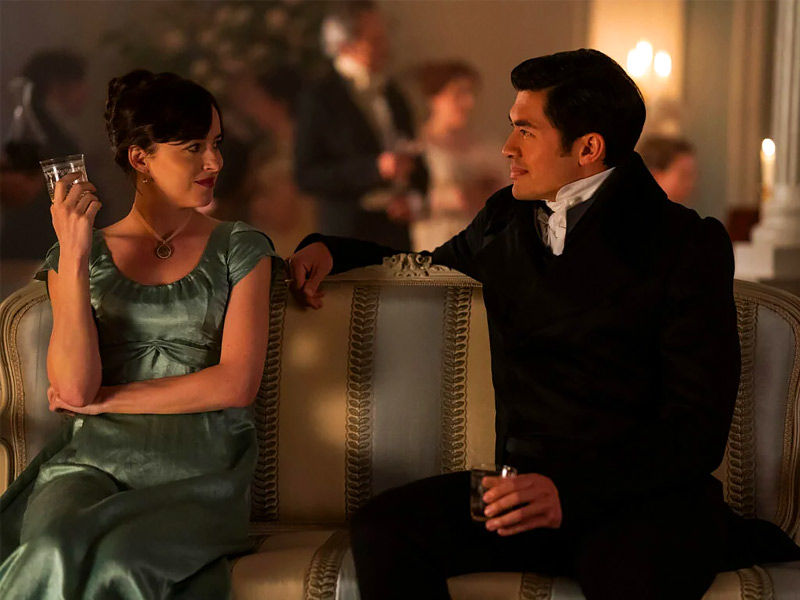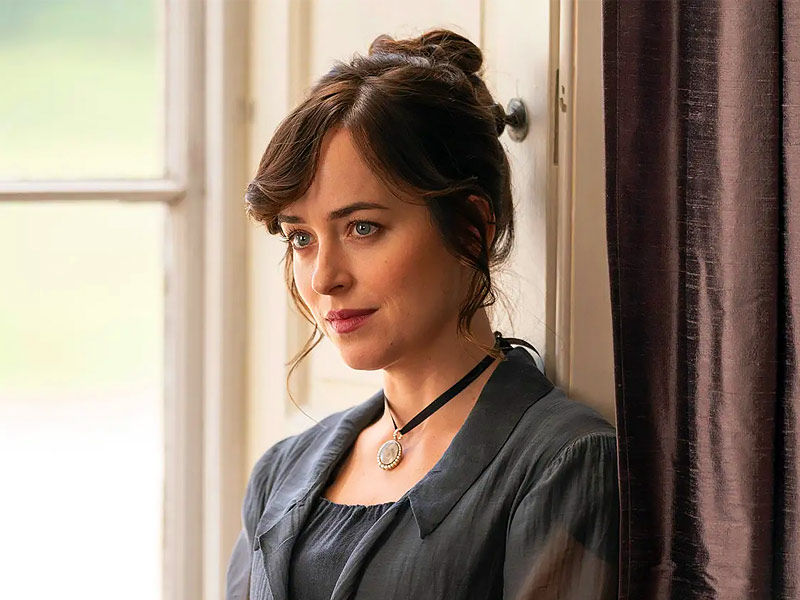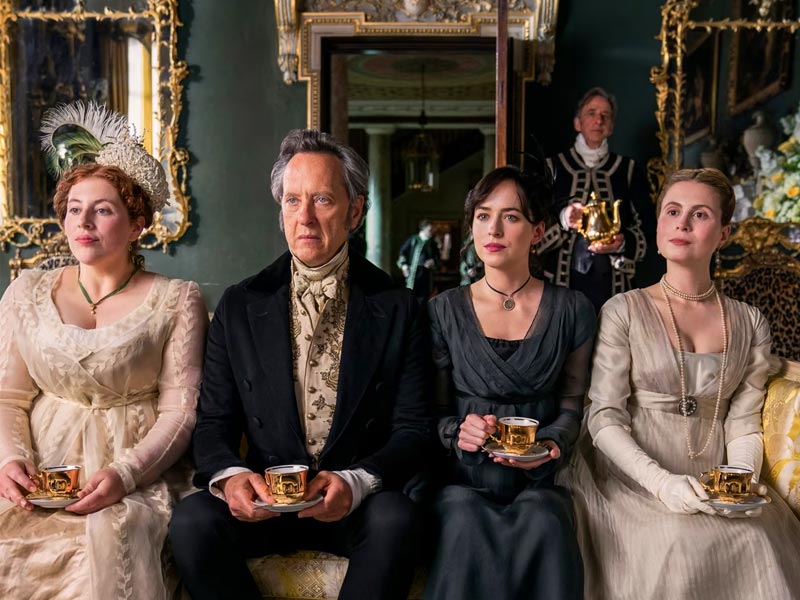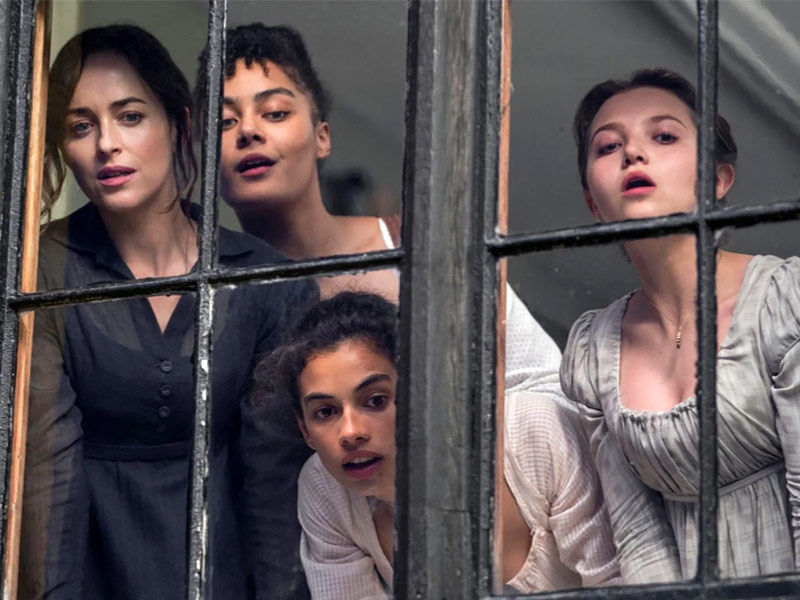Austenites were outraged by the Persuasion trailer, a Netflix version of Jane Austen’s final book. The majority of the online reviews for the movie since it was released on July 15 have been harsh denunciations, calling it a farce, the worst Austen adaptation ever, shocking, and an unmitigated disaster.
The movie has evaded patient, neutral criticism. I have grown to have a sufficient stomach for both lowbrow and contemporary versions of classics that employ haphazard experimentation in form and language as I inch closer to 50 and grow up with my 11-year-old daughter.

Anti-purism is incredibly liberating. Since I had not read the book, I had no reason to be outraged by the trailer. I then bought it and began reading. I had one of the most thrilling speed reads of my life on Kindle for about 26 rupees. The shortest and most melancholy of all of Austen’s novels is Persuasion.
When she was almost 40, she started writing the book, and a year after finishing it, she passed away. In this work, more than ever, Austen is truly solely interested in interiority, not the societal criticism that pops up in all of her books.

So what were the goals of the latest Netflix adaptation, as directed by Carrie Cracknell with writing by Ron Bass and Alice Victoria Winslow?
Their aim appears to be to blend modern problems and language with a Regency-era look, much as the wildly popular series Bridgerton.
Peacocks, flowing dresses with Bertha necklines, colorful cakes, age-specific millennial fears, and a language to express those issues that a 16-year-old today can easily relate to are all present.
The longing and grief that the main character Anne Elliott (Dakota Johnson) has been carrying about for eight years about the love she was unable to save, Wentworth (Cosmo Jarvis), turns into a “hot mess.” All of the characters’ lifestyle philosophies, especially Anne’s, are so 2022 that they clash with the Regency aesthetic like Billie Eilish singing The Beatles tunes.

Anne says, swigging wine straight from the bottle, “I’m single and prospering.” The phrase “self-care” is used frequently. The woman who had a key role in ending Anne’s engagement to Wentworth, her middle-aged neighbor Lady Russell (Nikki Amuka-Bird), declares, “I am my own company.” “The playlist he made me,” says Anne.
I felt my entire body tremble as Elizabeth Mary (Mia McKenna Bruce), Anne’s whining, angel-faced, sweet-talking sister, tried to “embody thankfulness” on the advice of her doctor.
More examples of this generational appropriation include “If you’re a five in London, you’re a ten in Bath,” “Now we are worse than exes, we’re buddies,” and “A woman without a spouse is not a problem to be solved.”

The entire plot of a romance novel set in the Victorian or Regency eras, as well as Persuasion itself, would fall apart if the last statement were to be believed at the time. Since narcissism is the greatest human crime among Instagram wellness experts, Anne’s father, the smarmy Mr. Elliot, is a figure of derision in her mind.
None of the extra additions and flourishes fit with the basic outline of Austen’s plot, the locale, and the period. Sensibilities clash and clang together. The third-person narrator role in the book is given to Anne, who must constantly scan the scene of the action for her reactions to characters and events.

One such piece-to-camera cutaway from the action reads, “Now we are worse than exes, we’re buddies.” Similar to those in Bridgerton, most of the verbal ping-ponging occurs between Anne. Ouch.
I was beginning to lose control of my anti-purist personality by the time this hurried narrative about a languorous longing reached its halfway point. Every scenario from the novel came to mind.
The most magical parts of the book’s scenes don’t adapt well to the film. Consider the climax. At Bath’s White Hart Inn, Anne and Wentworth are sharing a room. He is composing a letter while seated at a desk. She is close, discussing men, women, and commitment with Captain Harville, a mutual friend. Harville thinks men have more intense emotions than women.
Also read: Best of Jane Austen: Explore the Victorian England

Anne disagrees, and although she makes no mention of Wentworth or her personal situation, she obviously has him in mind during the entire conversation. We certainly do not forget you, so easily as you forget us, she tells Harville, breaking her silence about her grief over Wentworth after eight years of holding it inside. Perhaps it is more a matter of fate than of merit. We are powerless to intervene. We are restricted and silent at home, and our emotions prey on us.
Wentworth overhears Anne’s remarks while he is still composing his letter and realizes right once that she is talking about their relationship and everything that has been lost. He starts writing a second letter, which he leaves on the desk for her to read, in which he expresses his love for her as she expresses hers for him.

The letter is read by her. He does care for her. Though not in what she eventually says to Wentworth, her excitement leaps. She makes a very casual statement. Reading the letter, the reader is ecstatic: “You pierce my soul. Don’t tell me I’m too late or that these priceless sentiments are lost forever. With a heart that is, even more, your own than when you nearly broke it eight and a half years ago, I offer myself to you once more.
Although Jarvis proves to be one of the best Austen heroes on screen just in the way he looks and especially in the way he appears to be in a perpetual state of imploding sorrow under his scruffy hair, the action and the build-up of the tension between Wentworth and Anne don’t quite sizzle enough under the surface as it does throughout the book leading up to this scene.
The exchanges between Wentworth and Anne cool off when Mr. Elliot (Henry Golding), a distant cousin of Anne who is madly in love with her, enters the story. The overall upbeat tone of the movie makes Anne and Mr. Elliott appear like a far better match than Anne and Wentworth. In other words, the final scene of the movie that comes after the letter is so dull that it hardly elicits a sigh. I expressed my sincere regret to myself and other Jane Austen enthusiasts at this point.

The only redeeming quality of this Anne is the occasional outburst of rebelliousness when she is not being a kind, fussy sister to her married sisters or a wonderful aunt to her nephews and nieces. She tells a story about an octopus biting her face in a dream during an awkward social gathering to break the oppressive quiet. It’s a wonderful Phoebe Waller-Bridge touch that contrasts sharply with the rest of her “hot mess,” people-pleasing characteristics. It is a genuinely amusing situation.
There are two Austens, one for academics and one for general readers. The wooing and the strong and sinewy female characters are the main focus for the casual reader. The boy always chooses the female. The majority of viewers of the film and television adaptations are also casual readers. Northanger Abbey, Sense and Sensibility, Mansfield Park, Pride and Prejudice, Emma, and Persuasion have all been adapted since 1995.

With Persuasion for a BBC series in 1995, British director Roger Michell achieved the impossibility. He produced a Jane Austen movie that is neither attractive nor endearing. Instead, it is tense as it focuses on the book’s central tragic romance, with the camera capturing every glance shared by the ex-couples and searching every moment for indications of hope.
For teachers and students of literature, Austen is a sort of miniature writer who focuses on a very specific segment of Victorian society—the landed gentry. And the bubble that her characters live in gives them agency. A world worth capturing, or not? On it, critics are still split. But everyone can agree that she caught this reality with astounding accuracy, and in doing so, she ruthlessly compels us to face even our most minor moral failings.

Due to her keen eye on human frailties and the need to be true to oneself, critic Lionel Trilling reportedly dubbed Austen “an agent of dread.” No amount of contemporizing would make an adaptation fascinating or relevant unless it can clearly convey the important nuances of behavior and moral motivations, as well as the inner lives of her characters.
In his 1996 film adaptation of Romeo and Juliet, Baz Luhrman condensed the play’s emotional truth. When Joe Wright adapted Pride and Prejudice in 2005, he perfectly captured the deteriorating tension between Elizabeth and Darcy.
What’s lost, unclear, and convoluted in this persuasion are the details. The producers’ excessive focus on how to make Austen hip and approachable has had the biggest negative impact in the history of book-to-screen adaptations.




























